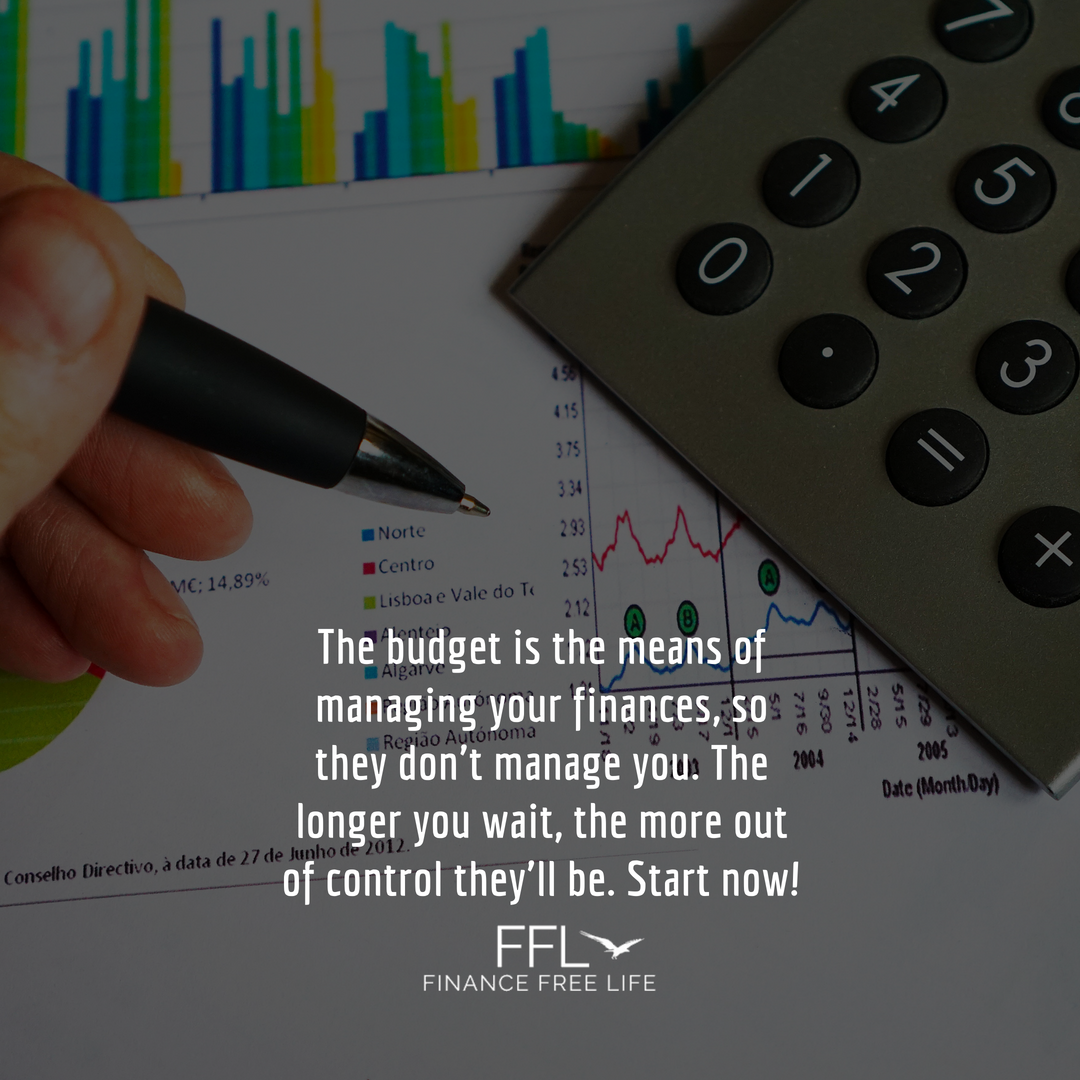Basic Budgeting Tips – 7 Tips You Need for Financial Success
Budgeting can be a challenge, especially when you are first getting started. But it doesn’t have to be. Start using these basic budgeting tips, and we promise it will get easier for you.
1. Just START! Income – Expenses = $0.
Remember that a basic budget is just that. Income – Expenses = $0. You don’t need fancy math or elaborate spreadsheets to start a budget. If you’re into that though, that’s ok too. Just do it! Don’t make excuses to wait around. A budget is a means of tracking and managing your finances, so they don’t manage you. And the longer you wait to start, the more out of control your finances will be.
2. Update it regularly.
The budget is not on autopilot and is not something that can be self-managed. It needs to be managed and maintained regularly, through time and dedication. So set aside time to check up on your finances and ensure the budget is working properly. If you’re not checking them, even if you have an automated system, something could go wrong and you won’t know until it’s too late. We have bi-weekly budget meetings (usually after we get paid) to make sure everything is still running smoothly. Find a system that works for you and run with it!
3. SAVE!
Make sure you are saving! According to a recent article released by CNBC, over 40% of Americans have less than $10,000 saved for when they retire. To add to that, 19% of Americans admit to saving none of their income at all, with 21% saying they save 5% or less. Our recommendations, after saving a $1000 emergency fund, is to be saving a minimum of 10% of your income every month and contributing at least 5% of your income towards retirement. You can save in a variety of ways for a variety of things, but it’s important to be saving rather than incurring debt to pay for the things you want in life. Going on vacation, planning to purchase a new vehicle or home, or home renovations all require planning and saving. Saving money in advance for these things rather than incurring new debt is the best plan of action. Which brings me to my next point…
4. Plan for it!
Whatever you may have coming up in your future, plan for it! There is no need to make excuses to use credit cards or other forms of debt to make new purchases. You can easily plan for these in advance if you plan for them! But, this requires diligence. You need to plan for them months in advance and save up the cash to make the purchase, rather than being impulsive. The other side of this is within your budget. Your budget doesn’t have to be boring. If there are things you want to do, things you enjoy, plan for them! It’s OK for you to put money in your budget to play golf a few times a month or go to the movies on the weekends. Just plan for it in your budget.
5. Stretch your dollar.
Living on your budget, do your best to stretch your dollar. This doesn’t mean you have to be cheap, it just means you can be frugal. Only buy what you need. When grocery shopping, try meal planning and make a list – you will find yourself wasting less food, and spending less money each week. Try thrift stores instead of name brands, or outlets instead of department stores. Hit the clearance racks and coupon books, and you’ll find yourself saving money right and left. Most importantly, don’t be impulsive. Evaluate each purchase against your wants and needs. Think about if you really need it, will it fit in your home, and if it will fit in the budget.
6. Use your emergency fund.
When you need to. Don’t be afraid to touch the emergency fund when true emergencies come up. There is a reason you saved it – for financial emergencies! Don’t be afraid to pull from it when a crisis hits and you don’t have a way to pay for it. Just be sure to replace it as quickly as possible within your monthly budget. This is where your learning to be frugal will come in handy. Divert all your non-essential monies back to the emergency fund to re-save the money spent, and you’ll be back on track. Just make sure that when you use your emergency savings, it’s a true emergency. Wanting a new purse, back to school shopping, or finding the perfect gift is not an emergency. Think planned vs. unplanned and you’ll get the right idea.
7. Give yourself grace.
Remember to give yourself the freedom to make mistakes, and forgive yourself along the way. No one is perfect, and you will make mistakes along the way in the budgeting journey. This goes for your spouse and yourself. Forgive them when they spend money in a way that you would not have. And remember that budgeting is not easy! If it was, everyone would do it.
Remember these tips when developing your financial plan, and you’ll be well on your way to being successful. Remember, it doesn’t happen overnight. It takes work, it takes practice, and it is a lifestyle change.

